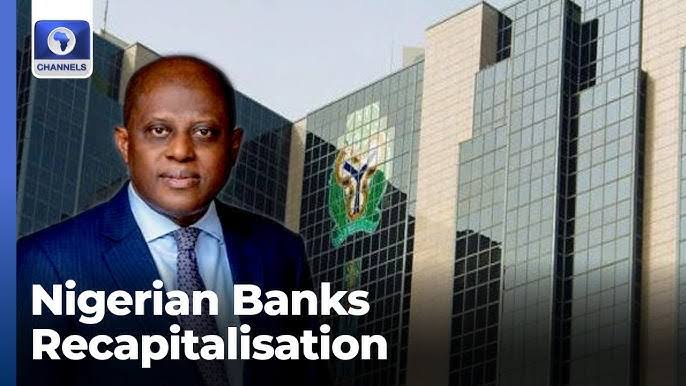Several Nigerian banks, including Access Bank, Zenith Bank, Fidelity Bank, and FCMB, are actively working to meet significant recapitalization targets. This effort is driven by the Central Bank of Nigeria’s (CBN) new capital adequacy requirements, which are part of the broader goal to strengthen the financial sector and support Nigeria’s growing economy. In total, these banks aim to raise N1.29 trillion over a three-month period.

The need for recapitalization has become more pressing due to the CBN’s mandate, which requires banks to bolster their capital reserves to remain compliant with regulatory standards and competitive in the market. This initiative is not just about meeting regulatory requirements; it is also a strategic move by these banks to strengthen their financial positions in an increasingly challenging economic environment.
To achieve these ambitious targets, Nigerian banks are employing a mix of traditional, innovative, and unconventional strategies.
1. Engaging Foreign Investors: Many banks have embarked on international roadshows to attract foreign investment. By visiting key global financial hubs, they aim to showcase their growth potential and solidify investor confidence in Nigeria’s banking sector. Foreign investments are particularly valuable because they bring in foreign currency, which significantly boosts the banks’ capital when converted to naira.
2. Leveraging Supplier and Contractor Relationships: In a more unconventional approach, some banks are reportedly requiring their suppliers and contractors to participate in their public offers. Those who do not comply risk being blacklisted. This tactic highlights the lengths to which banks are willing to go to secure the necessary funds.
3. Internal Targets for Staff: Banks are also relying on their employees to help meet their capital-raising goals. Employees are being set ambitious targets to sell shares to their networks, including customers, family, and friends. This strategy not only helps raise capital but also deepens employee engagement with the bank’s financial success.
4. Tapping High-Net-Worth Individuals (HNIs) and Existing Shareholders: Banks are also targeting HNIs and existing shareholders to boost their capital. These investors, with their significant disposable income, are being encouraged to purchase more shares, thereby increasing the overall capital pool.
5. Approaching Institutional Investors: Pension funds, mutual funds, insurance companies, and other financial institutions are being approached as key participants in the recapitalization efforts. These institutions typically hold large reserves and are seen as critical to providing the long-term capital needed by the banks.
Among the banks, Zenith Bank aims to raise N290 billion, Access Bank is targeting N351 billion, and Fidelity Bank has already met its N127 billion goal. FCMB seeks to raise N110.9 billion, while GTCO has set the most ambitious target at N400.5 billion.
The success of these recapitalization efforts will largely depend on how effectively the banks execute these strategies. While some of the unconventional methods, such as leveraging suppliers and internal staff, may raise questions about their sustainability, they underline the banks’ determination to meet their targets. As the recapitalization process continues, it will be crucial for these banks to navigate the current economic challenges while maintaining strong relationships with their stakeholders.




